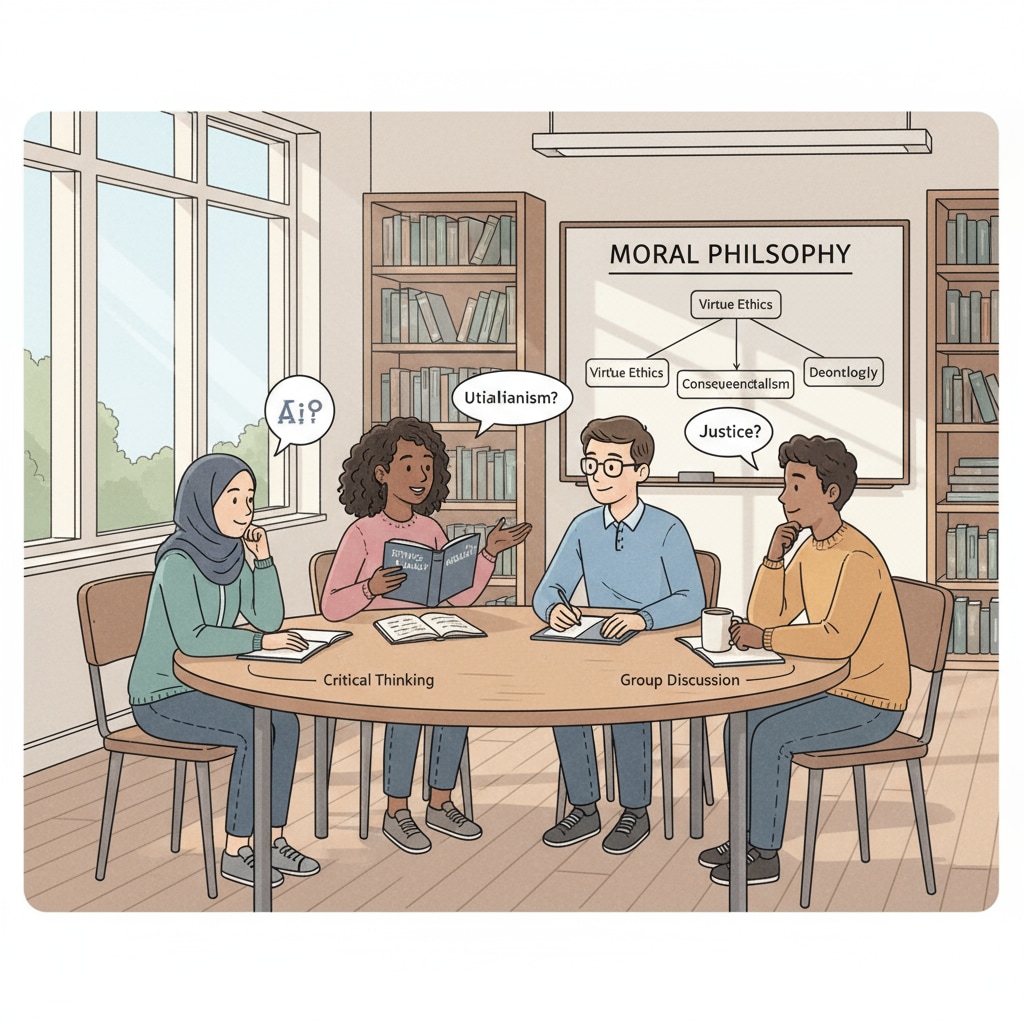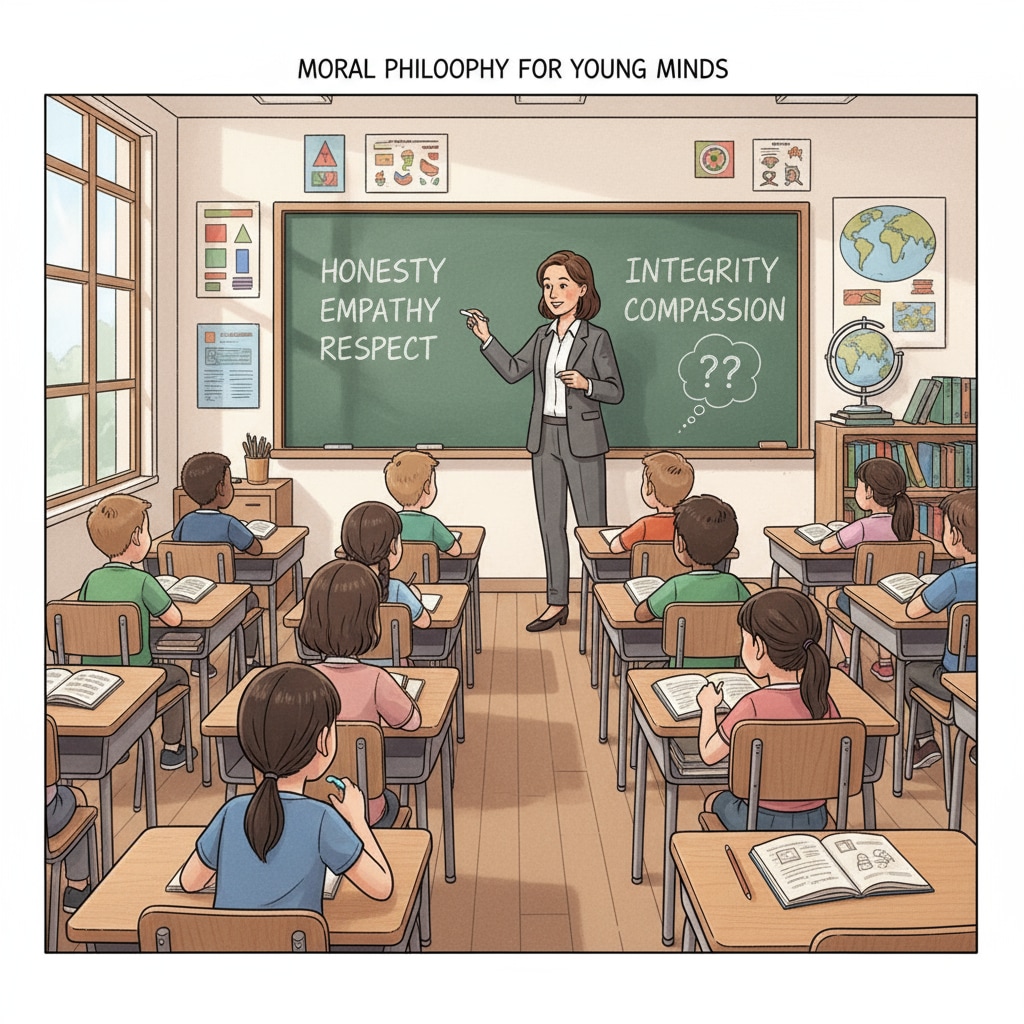In today’s society, the concepts of moral philosophy, ethics, empathy, and compulsory courses have taken on new significance. As we navigate an era of increasing individualism, K12 education stands at a crossroads where reevaluating the role of moral philosophy education is not just an option but a necessity.

Moral philosophy and ethics, when integrated into the curriculum as compulsory components, have the potential to cultivate students with a deep sense of empathy and social responsibility.
The Current Landscape of K12 Education
K12 education has traditionally focused on academic subjects such as mathematics, science, and language arts. While these are crucial for intellectual development, there has been a growing realization that something is missing. In an age where social issues are becoming more complex, students need more than just knowledge; they need the ability to understand and connect with others on an emotional level. This is where moral philosophy and ethics come in.

The Power of Moral Philosophy and Ethics
Moral philosophy delves into questions of right and wrong, good and bad. It encourages students to think critically about moral issues and develop their own ethical frameworks. Ethics, on the other hand, provides practical guidelines for moral behavior. When taught as compulsory courses, they expose students to different moral theories and real-life ethical dilemmas. For example, a study on utilitarianism might prompt students to consider the greater good when making decisions, fostering a sense of empathy towards the well-being of others. Moral philosophy on Wikipedia Moral philosophy on Britannica
Moreover, these courses often include discussions on social justice, equality, and human rights. Through these discussions, students learn to recognize the experiences and struggles of others, which is a fundamental aspect of empathy. By understanding that different people have different perspectives and circumstances, students can develop the ability to put themselves in others’ shoes.
Cultivating Empathy and Social Responsibility
Empathy is not an innate trait but rather a skill that can be developed through education. Moral philosophy and ethics courses provide the perfect platform for this development. Through case studies, group discussions, and role-playing activities, students are encouraged to analyze moral situations from multiple viewpoints. This hands-on approach helps them understand the emotional impact of actions and decisions, thus enhancing their empathetic skills.
Social responsibility, too, is closely linked to empathy. When students are taught to empathize with others, they are more likely to take action to address social issues. For instance, understanding the struggles of the less fortunate may inspire students to engage in community service or advocate for policies that promote social equality. By integrating moral philosophy and ethics into the curriculum, we are equipping students with the tools they need to become active and responsible citizens.
Readability guidance: The use of short paragraphs and lists helps summarize key points. Each H2 section has a list-like structure for better organization. The passive voice and long sentences are kept to a minimum, and transition words like “moreover,” “for instance,” and “by” are used throughout the text to enhance readability.


